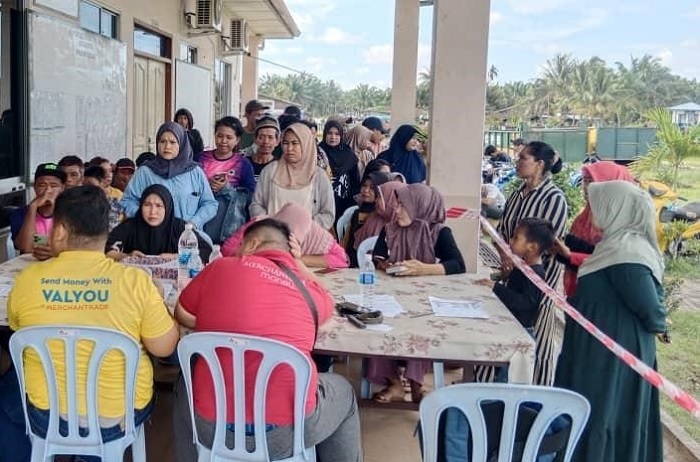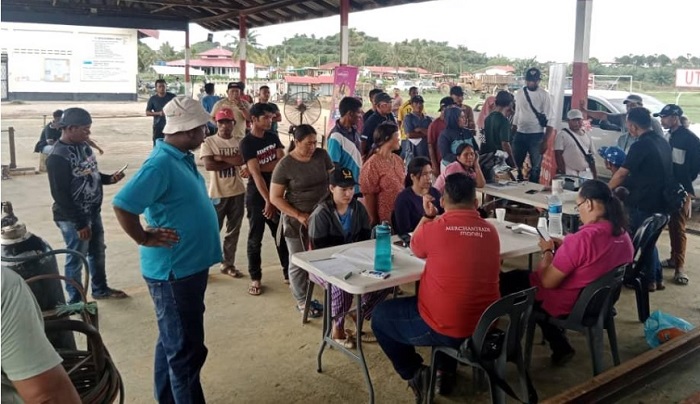Peninsular Malaysia Labour Dept recognises Merchantrade Asia as an Approved Issuer of a Designated Payment Instrument
By Digital News Asia August 5, 2024
- Trusted by migrant workers with outbound remittance turnover of US$1.8bil in 2023
- 'First-to-last-mile' digital wage solution ensures strong support at every step for customers

Merchantrade Asia Sdn Bhd, Malaysia’s largest Money Services Business (MSB) operator and a leading player in the digital payments space, has been officially recognized as an approved issuer of a designated payment instrument by the Jabatan Tenaga Kerja Semenanjung Malaysia (Peninsular Malaysia Labour Dept) for the purpose of wage payments.
This is in line with the Employment (Recognized Approved Issuer of a Designated Payment Instrument) Order 2024 issued by the Minister of Human Resources.
The approval benefits Merchantrade which launched its hybrid Merchantrade Money e-wallet in Jan 2018 in partnership with Visa, targeting both Malaysians and migrant workers in the country. Recognizing the significant challenges employers face in opening traditional bank accounts for migrant workers and other unbanked segments, it has gradually expanded the features of the card for this segment to its current stage with features such as remittances, mobile top-ups, , personal accident insurance coverage with basic plan as low as for RM5 per month, QR payments, P2P transfers, online purchases, multi lingual application and customer service with eight languages including English, Malay, Nepali, Indonesian, Bengali, Tamil, Chinese and Burmese and with Bank Negara approval to hold up to US$4,517 (RM20,000).
The JTKSM approval is set to transform the payroll process for companies by eliminating cash and cheque-based payments and enabling direct salary disbursements into employees' Merchantrade Money e-wallet. From large MNCs to SMEs, Merchantrade said its solution will be a game-changer across various industries, including plantation, manufacturing, construction, service, and domestic work.
 “Digital wage payments are gaining momentum worldwide, and we are proud to be leading this evolution in Malaysia,” said Ramasamy K. Veeran (pic), founder and MD of Merchantrade.
“Digital wage payments are gaining momentum worldwide, and we are proud to be leading this evolution in Malaysia,” said Ramasamy K. Veeran (pic), founder and MD of Merchantrade.
“Expanding into digital wage solutions was a natural progression following our growth in the remittance and e-wallet space, addressing yet another critical pain point for foreign workers and other unbanked segments in Malaysia. Over the years, we have built a robust ecosystem tailored to the needs of this segment; thus, we believe Merchantrade is strategically positioned to facilitate the shift from cash to digital wage payments,” Ramasamy added.
Merchantrade has established itself as a trusted brand among the migrant worker community, recording an outbound remittance turnover of US$1.84 billion (RM8.15 billion) in 2023. The company has also served over 5 million customers since its inception, through its online and brick-and-mortar channels, across its remittance, currency exchange, e-wallet, insurance, and telecommunications services.
Complementing its proprietary wage disbursement and e-wallet platforms, the company’s ecosystem includes an extensive network of physical touchpoints, with 95 branches and over 490 agent locations nationwide serving as support centers with dedicated on-ground teams that assist both employers and employees in urban and rural areas. The company’s 'first-to-last-mile' approach ensures comprehensive support at every step of their journey, from onboarding and training to after-sales service.
Through a collaboration with AmBank Islamic, the integration of Merchantrade Money e-wallet (with RM20,000 wallet size) with an AmBank Islamic Hybrid Current Account-i (hCA-i) (RM30,000 wallet size) allows users to access a combined limit of up to RM50,000, making it the first of its kind in Malaysia.
Paired with a Visa prepaid card, users can make cash withdrawals and cashless payments, both at retail outlets and online.
From an ESG perspective, this solution supports Merchantrade’s mission of promoting equitable financial services and is closely aligned with the government’s digital transformation and sustainability agenda, as well as Malaysia’s Financial Inclusion Framework FY2023–FY2026.

Related Stories :


